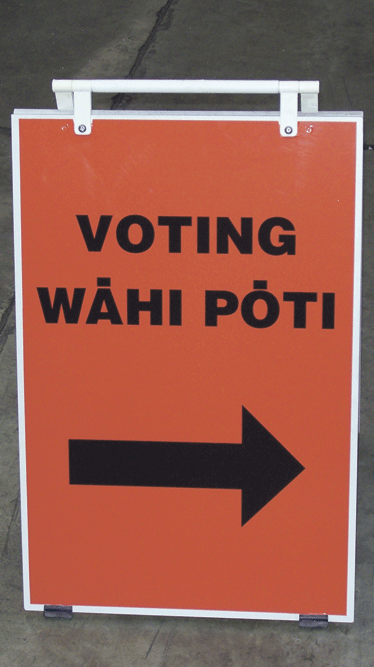 August 2014
August 2014
Election 2014
Susan Wilson
For democracy to work, people need to be involved. At the very least this means people need to vote at general elections.
Did you vote in the 2011 elections? If you are over 65, the answer is probably ‘yes!’ because 94.4 percent of people in your age group voted. If you were between 18–24 in 2011, your answer is likely to be ‘Maybe’ as 42 percent of you did not tick a ballot paper. Good on the 58 percent of you who did!
It is not just young people who are under-represented at the polling booth on election day. According to Statistics New Zealand, those whose incomes are insufficient to meet their everyday needs (28 percent non-voters) and those who are unemployed (35 percent non-voters) are less likely to vote than people with adequate incomes and/or are employed.
If I am young or poor or unemployed or all three, maybe I do not think my vote will count; maybe I am just not that interested; maybe I don’t know the issues; or maybe I think politicians are all the same. Does this matter?
Yes, it matters. If I am a politician, I will know any initiative for young people I support is not going to be a vote winner because many young people are disengaged from the electoral process. I will know that supporting positive, life-enhancing policies for the poor and the unemployed is also not going to translate into votes on election day. However, I will seriously consider any policy that relates to the over-65 age-group because this engaged group votes.
Some vulnerable sections of our society are not well represented in Parliament because they are disengaged from the electoral process. What can we do if we are concerned about this?
Those of us who are parents can discuss politics and the elections with our children. This will make elections a familiar event for our children and voting will be a normal thing to do. If children are over 18, we can ask them if they are on the electoral roll – at present one in four are not – and encourage them to vote. We may make voting a group activity and go to the polling booth with family and friends. Many parishes are involved in ‘meet-the-candidates’ evenings prior to the election, which we can participate in and encourage others to come along.
We can also ask the candidates in our electorates how the policies they support are benefiting the poor, the young and the unemployed.
For example, what policies do our candidates and political parties have to improve the lot of the 285,000 children who live in poverty in New Zealand (www.childpoverty .co.nz)? As Catholics, we are interested in the welfare of all people and in the seamless ethic of life (Cardinal Bernardin), from conception, to death and the time between.
The election is an opportunity to put the interests of the vulnerable people in society at the forefront.
Susan Wilson is the eLearning Coordinator for The Catholic Institute of Aotearoa New Zealand.